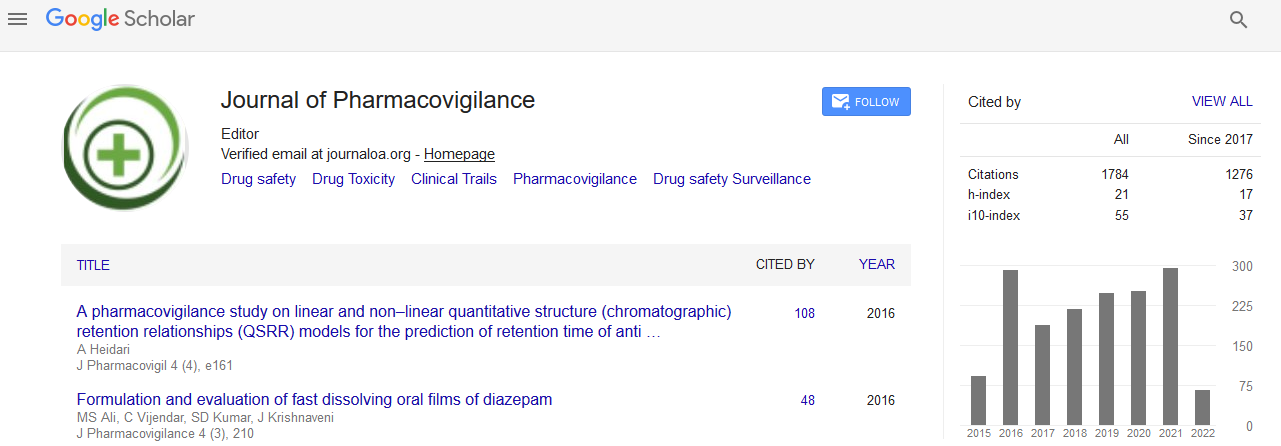Indexed In
- Open J Gate
- JournalTOCs
- The Global Impact Factor (GIF)
- RefSeek
- Hamdard University
- EBSCO A-Z
- OCLC- WorldCat
- Publons
- Euro Pub
- Google Scholar
Useful Links
Share This Page
Journal Flyer

Open Access Journals
- Agri and Aquaculture
- Biochemistry
- Bioinformatics & Systems Biology
- Business & Management
- Chemistry
- Clinical Sciences
- Engineering
- Food & Nutrition
- General Science
- Genetics & Molecular Biology
- Immunology & Microbiology
- Medical Sciences
- Neuroscience & Psychology
- Nursing & Health Care
- Pharmaceutical Sciences
Abstract
Pharmacovigilance Practices: Knowledge and Attitudes among the Healthcare Professionals at the Volta Regional Hospital of Ghana
Sedem Nunyuia Amedom and Dadson BA
Pharmacovigilance since its inception has been the global medicine safety monitoring tool by all World Health Organization member states. Ghana joined the program as the 65th member in 2001. Pharmacovigilance has mainly relied on spontaneous reports of adverse drug reactions from healthcare professionals. However, under reporting has been reported to be a major challenge. The success of the PV system in Ghana depends greatly on the understanding, active involvement and practices among the country’s healthcare professionals The study evaluated the pharmacovigilance practices among the healthcare professionals at the Volta Regional Hospital, Ho, by assessing their knowledge, attitudes and practices towards the program. A descriptive cross-sectional design was used and a 27-item pre-tested self-administered questionnaire as the research instrument. Convenient and judgmental sampling techniques were used to select an estimated sample of 145 representing, 68.1% of the targeted population. Data was processed and analyzed by the use of Statistical Package for Social Sciences (SPSS) version 20. Using descriptive statistics, frequencies were used to attain the individual and average percentages of responses. High level of awareness (doctors 88%, pharmacists 92.2% and nurses 78%) and positive attitude (doctors 72.4%, pharmacists 83.8% and nurses 68.2) among the respondents on pharmacovigilance was observed. The level of practice was observed to be relatively lower, especially among the doctors and the nurses. As low as 16.7% and 24% of the doctors and the nurses has ever reported ADRs by the use of the Blue form. Continual training on the essence and the use of the reporting forms with increased availability and accessibility of the reporting forms at all departments/units of the hospital coupled with regular public education on ADR reporting are recommended interventions.


